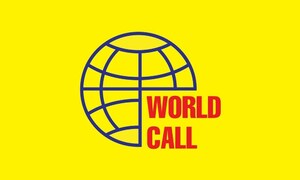KARACHI: Over 75 percent of Pakistani women suffer from calcium deficiency due to poor dietary habits and insufficient awareness.
A theatre play, “Chuna Lagake” highlighting the prevalence of calcium deficiency among Pakistani women and its impact on their health, was staged at the Arts Council of Pakistan, Karachi on Sunday.
Organized by PharmEvo, a local pharmaceutical company, the event was attended by medical professionals and health experts who lauded the initiative for spreading awareness about a critical health issue affecting women.
The play illustrated how calcium deficiency leads to weakened bones, osteoporosis, and fractures, significantly impairing women’s ability to perform household and workplace responsibilities effectively. It also shed light on the resulting familial tensions caused by health-related challenges faced by women.
Speaking after the event, Dr Shaheen Zafar, a gynecologist, emphasized that calcium deficiency is a leading health issue for women in Pakistan.
“Due to this deficiency, women experience bone and joint problems but are often unaware of the root cause. These issues can be managed through proper calcium supplementation,” she noted.
Dr Zafar also pointed out that repeated pregnancies further exacerbate calcium depletion, making women more susceptible to fractures in old age.
“A healthy mother is the foundation of a healthy family,” she said, urging women to prioritize their health.
Major General Dr Shehla Baqai, Dean at Bahria University, highlighted the lack of awareness among women about their health.
“Unfortunately, most women realize they have calcium deficiency only after suffering fractures. Soft drinks, which many consume regularly, further worsen the problem by hindering calcium absorption. Instead, we encourage women to drink water or lassi with meals for better calcium intake,” she said.
She stressed the importance of a calcium-rich diet and supplements for girls to prevent bone-related issues later in life.
Dr Baqai revealed that over 75% of Pakistani women suffer from calcium deficiency, attributing it to poor dietary habits and insufficient awareness.
PharmEvo’s Director of Marketing, Mohsin Shiraz Ali, stated that the company aims to promote not only physical but also mental and spiritual well-being.
He added that calcium is crucial for preventing osteoporosis, a condition widely prevalent among Pakistani women.
Dr Sumbul Sahel, a professor at Ziauddin Hospital, lauded the initiative, saying such plays are vital for spreading awareness about health issues.
“Young girls should be educated early on about calcium deficiency and its prevention. Consuming milk, cottage cheese, and calcium supplements, such as PharmEvo’s K1000, can help address the deficiency,” she suggested.
Dr Sahel highlighted the dietary sources of calcium, including milk, yogurt, cheese, sesame seeds, bone marrow, leafy greens, almonds, soybeans, and shellfish.
Copyright Business Recorder, 2025























Comments
Comments are closed.